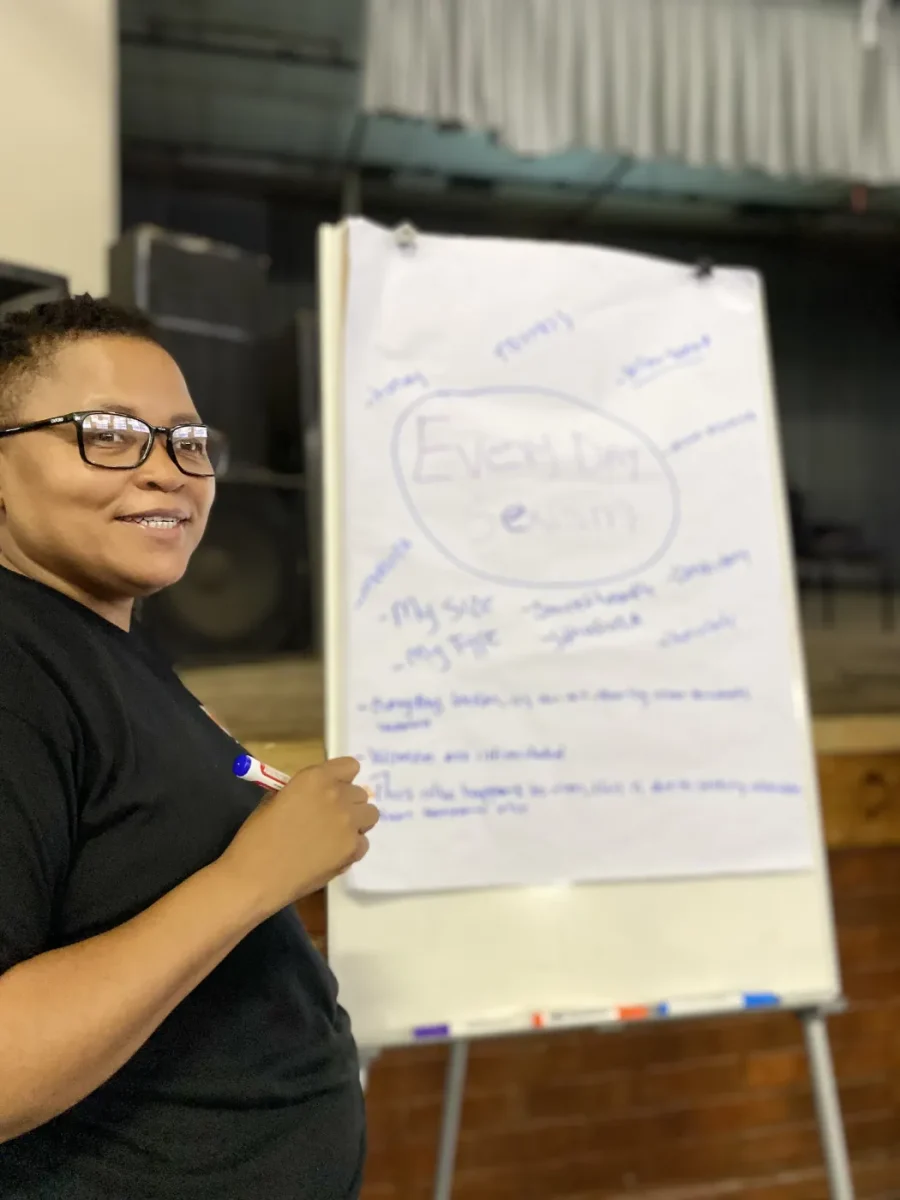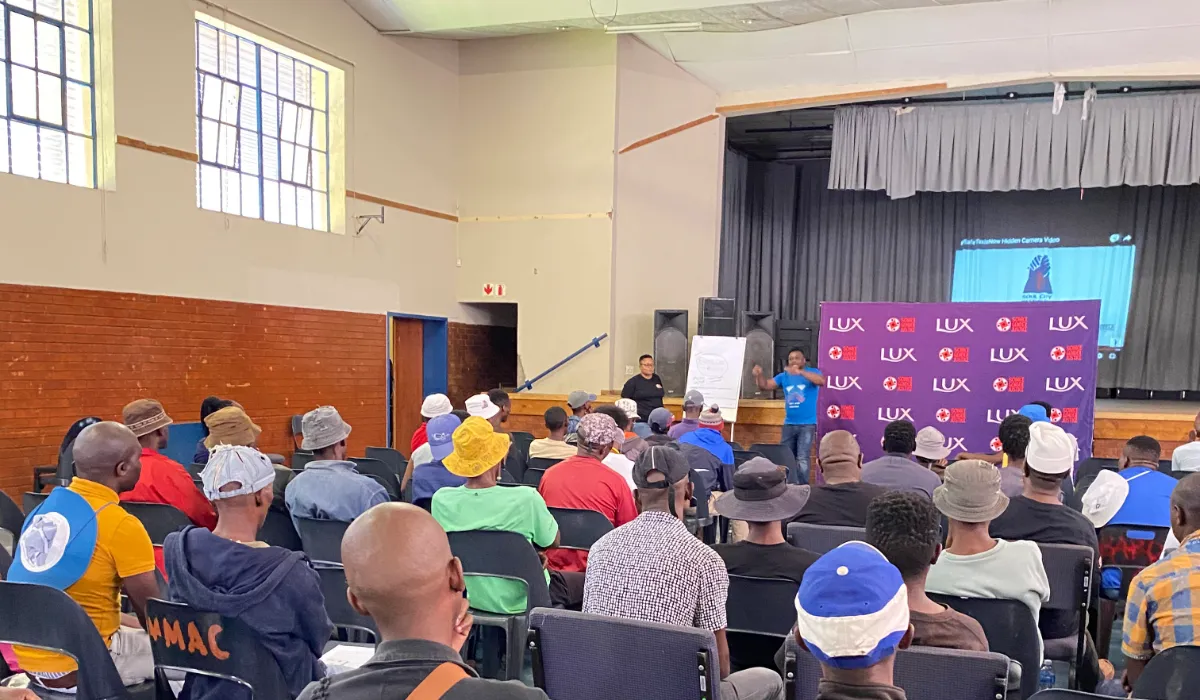Sonke Gender Justice, Unilever LUX SA and the International Centre for Research on Women collaborated on a campaign to advocate against sexism that women and gender non-conforming persons experience daily.
Everyday Sexism is best described as a gender-based prejudice and discrimination based on one’s sex or gender. It can be levelled at anyone, but world over, it is especially levelled against women, girls, and gender non-conforming persons. The experience of sexist comments, behaviours and treatment are normalised in communities, hence the term everyday sexism.
The campaign targeted men and boys as allies in addressing everyday sexism, becoming active bystanders, and promoting positive social norms of masculinity in public spaces for the freedom and safety of women and girls.
At the beginning of this project, a baseline survey was commissioned in two Johannesburg townships, namely Diepkloof in Soweto and Diepsloot township in the North of Johannesburg.
‘’The results were alarming but not surprising that indeed many men have witnessed everyday sexism, and most of them did nothing about it, whereas more than 90% of the female respondents indicated to have experienced it. We also learned that behaviours such as catcalling, groping and unsolicited attention leave women feeling harassed and objectified.’’ said Dumisani Rebombo, Sonke’s Community Education and Mobilisation provincial manager.

Through its various intervention activities, the campaign challenged years of being socialised to think that catcalling or groping is a way of appreciating a woman’s beauty rather than sexualizing women and violation when not welcomed. It challenged cultural, religious and practices that were central in interceding for certain harmful behaviour. It also managed to open conversations about everyday sexism and a call for individual and community level action to prevent it.
‘’Through activities such as dialogues, community workshops, large events, and panel discussions at Jozi FM radio station, the campaign took men and boys on a journey of understanding the harm everyday sexism causes, including public street harassment. We reached just over 330 people directly, and about 2.1 M people indirectly, using public service announcements and panel discussions on radio. ‘’ he adds.
As was expected, during the community workshops and dialogues, some of the comments from men were demeaning on women, but in each of the conducted activities, the project had progressive thinking men and women in the majority who would quell such ideologies and centralise human rights for all.
In one instance during a workshop in Diepsloot, one of the disgruntled male participants, who did not want to be named shared his views “There you go again, why is it that you paint men always as monsters? Men are also abused by women, and the fact that no one is researching men does not mean that we are not abused…this thing is 50-50!” while another male participant counter argued as follows “The history of us Black men has been full of exclusion and violence on women and children. Yes, some men can be abused, but it is never in comparison with women. Respecting women should not be seen as taking power from me.”
Such engagements helped the campaign to emphasise the active Bystander methodology, as it suggested that a positive window of opportunity is out there, that some men do want to change but they just do not know how.
Sonke intends to include the Everyday Sexism campaign content into the Gender Transformative Approaches and Gender Equality and Social Inclusion work.


